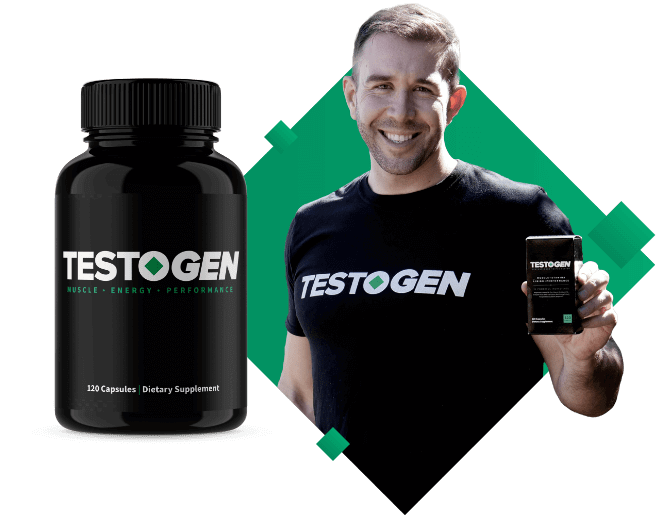Supplemental testosterone plays a crucial role in the lives of many individuals, whether for medical or performance-enhancing purposes.
However, the decision to use supplemental testosterone should be approached with careful consideration of various factors to ensure its safe and effective usage.
This comprehensive guide aims to explore the essential factors individuals should consider when using supplemental testosterone, providing valuable insights into making informed decisions and adopting safe usage practices.
Understanding Testosterone
Testosterone is a hormone produced primarily in the testicles for men and in the ovaries for women, though the adrenal glands also produce smaller amounts. It plays a vital role in developing and maintaining male characteristics and is also important for women’s health.
Testosterone significantly impacts muscle mass, bone density, red blood cell production, and libido.
Natural testosterone production typically declines with age, leading some individuals to consider Supplemental Testosterones to address symptoms of low testosterone levels, also known as hypogonadism.
It is important to understand the distinction between natural and supplemental testosterone, as well as the potential implications of using supplemental testosterone to address hormonal imbalances.
Factors to Consider
Health and Medical History
Before considering supplemental testosterone, individuals should thoroughly assess their health and medical history. Existing medical conditions, such as prostate cancer, breast cancer, sleep apnea, and heart disease, may be contraindications for testosterone supplementation.
Additionally, certain medications, particularly corticosteroids and opioids, can interfere with testosterone levels and effectiveness.
Understanding these potential interactions is crucial to making an informed decision about supplemental testosterone usage.
Individuals should weigh these risks against the potential benefits of supplementation and discuss them thoroughly with their healthcare provider.
Lifestyle and Habits
Diet and exercise play a significant role in testosterone levels. A balanced diet that includes sufficient amounts of protein, healthy fats, and micronutrients is essential for optimal testosterone production.
Additionally, regular physical activity, particularly strength training and high-intensity interval training, can positively impact testosterone levels.
Conversely, excessive stress and poor sleep patterns can contribute to decreased testosterone levels. Therefore, individuals considering supplemental testosterone should evaluate their lifestyle and habits to optimise their natural testosterone production before considering supplementation.
Age and Hormonal Changes
Age-related declines in testosterone levels are a natural part of the ageing process. However, some individuals may experience symptomatic low testosterone levels at a younger age due to various factors, including obesity, chronic illness, or genetic predisposition.
Understanding the impact of age on testosterone levels and the associated symptoms is crucial in determining the potential need for supplementation.
Moreover, age-related considerations should guide the approach to supplemental testosterone, with special attention to the risks and benefits in different age groups.
Consultation with a healthcare provider
The decision to use supplemental testosterone should not be made independently. Consultation with a qualified healthcare provider is crucial in assessing individual needs and goals, as well as discussing the potential risks and benefits of supplementation.
Healthcare providers can conduct thorough evaluations of hormone levels, medical history, and lifestyle factors to determine the appropriateness of testosterone supplementation.
This personalised approach ensures that individuals receive tailored guidance and support in their decision-making process.

Choosing the Right Form of Supplement
Supplemental testosterone is available in various forms, including injections, gels, and patches. Each form has its own considerations, such as application methods, dosage flexibility, and potential skin irritation.
Factors influencing the choice of form may include individual preferences, convenience, and lifestyle considerations.
Understanding the options available and their implications is essential to making an informed decision about the most suitable form of supplemental testosterone.
Monitoring and Adjusting Dosage
Regular monitoring of testosterone levels and overall health is critical for individuals using supplemental testosterone.
Healthcare providers can assess the effectiveness of supplementation and identify any potential adverse effects through routine blood tests and clinical evaluations.
Based on individual responses and the results of monitoring, adjustments to dosage and administration may be necessary to optimise the benefits of supplemental testosterone while minimising potential risks.
Lifestyle Supportive Measures
In addition to supplemental testosterone, individuals can take proactive steps to support their overall health and well-being. Dietary modifications, such as increasing consumption of nutrient-dense foods and minimising processed foods, can contribute to optimal hormone balance.
Furthermore, tailored exercise routines, including resistance training and cardiovascular exercise, can complement the effects of testosterone supplementation.
These lifestyle measures can enhance the overall benefits of supplemental testosterone and promote a holistic approach to health.
Potential Benefits and Risks
Beyond the commonly recognised benefit of muscle mass enhancement, supplemental testosterone may offer additional advantages, including improved mood, cognitive function, and overall quality of life.
However, it is essential to recognise the potential risks associated with the improper use of supplemental testosterone.
These risks may include cardiovascular complications, fertility issues, and psychological effects. Understanding the balance between potential benefits and risks is crucial to making an informed decision about using supplemental testosterone.
Conclusion
In conclusion, the decision to use supplemental testosterone should be approached with careful consideration of various factors, including health and medical history, lifestyle and habits, age-related considerations, consultation with healthcare providers, choice of supplement form, monitoring and adjusting dosage, supportive lifestyle measures, and recognition of potential benefits and risks.
By thoroughly evaluating these factors and seeking professional guidance, individuals can make informed decisions about using supplemental testosterone, ensuring safe and effective usage practices.




